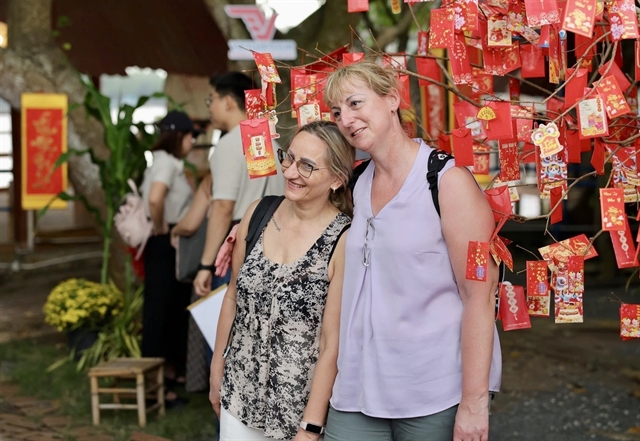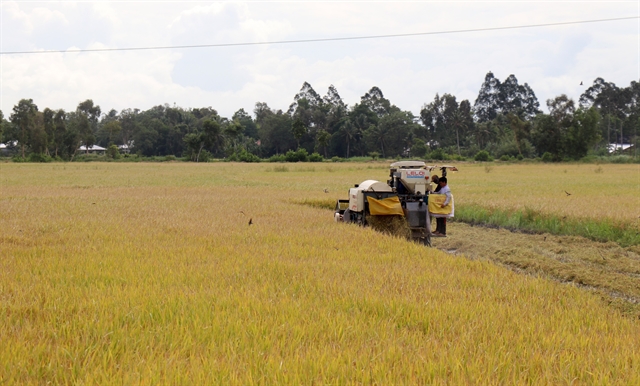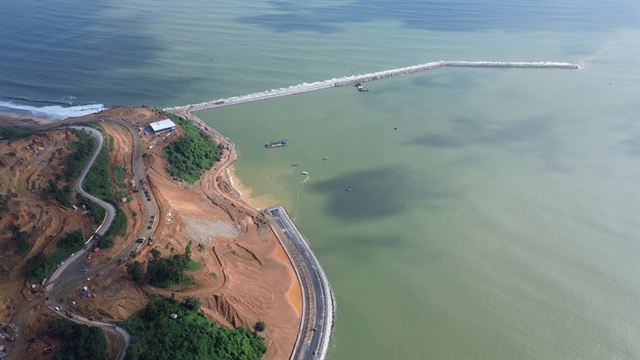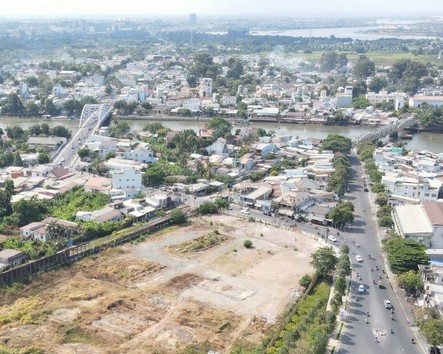 Society
Society

 |
| Farmers harvest summer-autumn rice in Kiên Giang Province’s Gò Quao District this year. – VNA/VNS Photo Lê Huy Hải |
KIÊN GIANG – The Cửu Long (Mekong) Delta province of Kiên Giang has produced more than 4.4 million tonnes of rice so far this year, slightly above its target.
The country’s largest rice producing province has planted a total of 700,000ha of rice this year, with the cultivation of high-quality rice varieties accounting for 97 per cent of its rice farming area.
The province has developed 693 large-scale rice fields with a total area of 109,332ha, according to its Department of Agriculture and Rural Development.
Of the large-scale rice fields, more than 500 with a combined area of 74,439ha are planted under farm contracts between farmers and companies to guarantee sales and stable selling prices.
The province has planted thousands of hectares of rice to meet Vietnamese and global good agricultural practices, organic or Sustainable Rice Platform standards to export to the EU, the US and Japan this year.
Lê Hữu Toàn, director of the department, said rice cultivation has faced difficulties such as prolonged high prices of fertiliser, pesticides and fuel this year.
Meanwhile, the price of rice has been lower compared to previous rice crops, leaving farmers with low profits, he said.
In addition, weather conditions were not favourable for rice cultivation in some localities this year, especially off-season rains that caused declined yields during the 2020-21 winter-spring rice, he said.
To reach the province’s rice output target this year, the department has strengthened instruction for farmers to tend rice and prevent diseases, and farmers have tended and protected their rice fields well.
The department has implemented programmes and projects to increase the cultivation of high-quality rice varieties.
The province’s Agriculture Extension Centre has provided farmers advanced farming techniques such as “three increases-three reductions”, “one must-five reductions”.
The “one must-five reductions” method requires the use of certified seeds, and reduces seedlings, nitrogenous fertiliser, plant-protection chemicals, and irrigation and post-harvest losses.
The province has boosted the use of machines to sow and transplant seeds and seedlings.
It has also expanded organic shrimp-rice farming in An Biên, An Minh, U Minh Thượng, Vĩnh Thuận districts.
It has effectively implemented plans to prevent and control drought and saltwater intrusion, including the building of dams to prevent saltwater intrusion and store irrigation water.
It has regularly inspected saltwater intrusion sites and informed the public so farmers can take preventive measures.
Localities have properly operated the opening and closing of sluices in the Rạch Giá- Kiên Lương and An Biên-An Minh sea dykes, Rạch Giá City, and the districts of Châu Thành and U Minh Thượng to regulate irrigation water for agricultural production.
The province has operated the Cái Lớn-Cái Bé irrigation project to secure fresh water for farming and household use in Giồng Riềng, Châu Thành and Gò Quao districts.
The operation of the Cái Lớn-Cái Bé irrigation project helped the province reduce the building of 200 temporary dams in the last dry season.
The Cái Lớn-Cái Bé irrigation project began operation in the last dry season and is the largest of its kind in the delta.
Before the operation of the project, the temporary dams were built every year to prevent saltwater intrusion. – VNS



